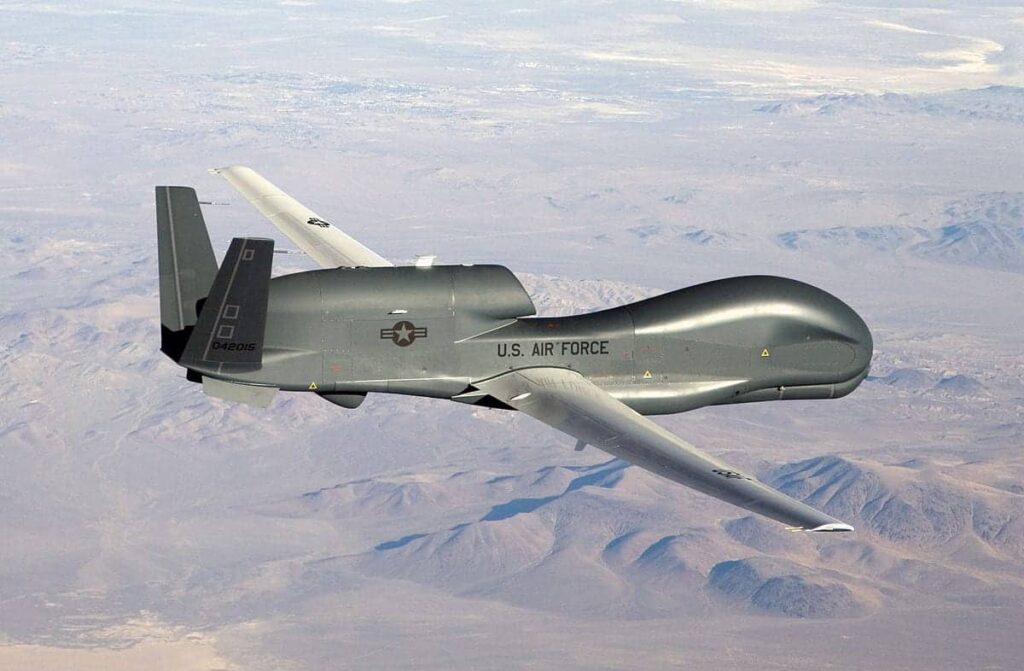Viasat, a global communications company, has announced that, in partnership with the U.S. Air Force, it has successfully completed its production readiness review (PRR) on the Mini Crypto program for the development of an embeddable cryptographic security/data module for military handheld devices and unmanned systems that communicates sensitive and classified data. By passing PRR, the U.S. Air Force and Viasat will proceed into Low Rate Initial Production (LRIP). The Viasat Mini Crypto module will enable U.S. Air Force and military personnel to procure affordable small form factor embeddable encryption devices.
Viasat’s Mini Crypto module is a new breakthrough in technology for securing U.S. Air Force’s small form factor unmanned systems and sensors that transmit SECRET and Below (SAB) data. The module enables rapid development of small form factor unmanned military applications that need to be securely connected to classified networks. The Mini Crypto enables more rapid and secure data dissemination to government personnel; provides increased protection and support for securing C2 (command and control) links critical to weaponized platforms; and ensures a secure backhaul link for classified data to various U.S. government agencies, giving decision-makers real-time access to mission-critical tactical data. Mini Crypto is a self-contained crypto engine that does not require manual key input since it uses certificate-based self-generated keys. It brings unprecedented ease-of-use to the warfighter through a battery-free, small physical footprint that leverages Cryptographic High Value Product (CHVP) handling policy, eliminating the tracking/retrieval burden associated with traditional Type 1 crypto.
“Mini Crypto is revolutionizing crypto for tactical operations. We think the Mini Crypto module will really help forward-deployed warfighters secure unmanned platforms, sensors, and communication devices in areas where risk of interception is high, and still protect sensitive data without burdening warfighters on the front lines with extra equipment or steps to safeguard the encryption device,” said Heidi Beason, Mini Crypto Program Manager at the Air Force Cryptologic and Cyber Systems Division. “In addition, we feel the Mini Crypto will enable us to lower operational costs achieved through the innovative use of self-generated keys as well as reduce expensive handling, logistics and lifecycle costs as the Viasat module is a non-Controlled Cryptographic Item.”
“Protected battlefield communications are critical to our warfighters, from ensuring unmanned systems can communicate at classified levels to making certain that sensors at the farthest edge of the battlespace can connect to critical networks in the Area of Responsibility (AOR),” said Ken Peterman, president, Government Systems, Viasat. “Viasat’s Mini Crypto represents a huge step in expediting the implementation of encrypted communications for tactical unmanned systems, sensors across the battlespace and development of systems that can be more easily shared with allies in the field. Prior to the availability of this crypto module, it was much harder to secure the increasing range of communications devices due to the complexity and high cost of cryptography technology; however, we are proud to have solved this problem with the Viasat Mini Crypto module that contains a complete crypto system.”
The Viasat Mini Crypto module is based upon Viasat’s programmable and embeddable PSIAM cryptographic technology. The module features a low size, weight, and power (SWaP) profile, which is critical for unmanned systems requiring a small form factor solution, and is fully programmable, enabling software to be upgradeable even after deployment.



















